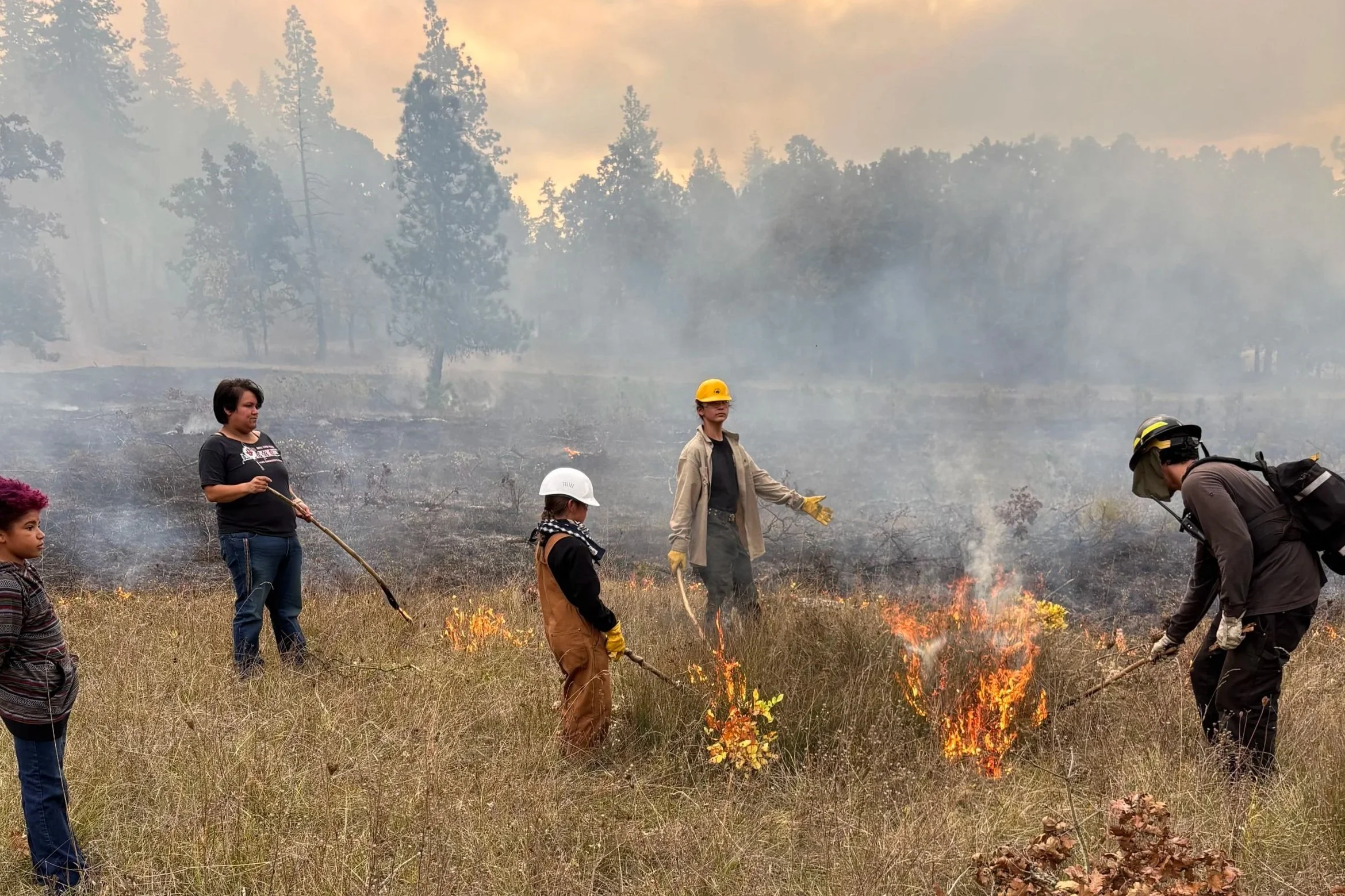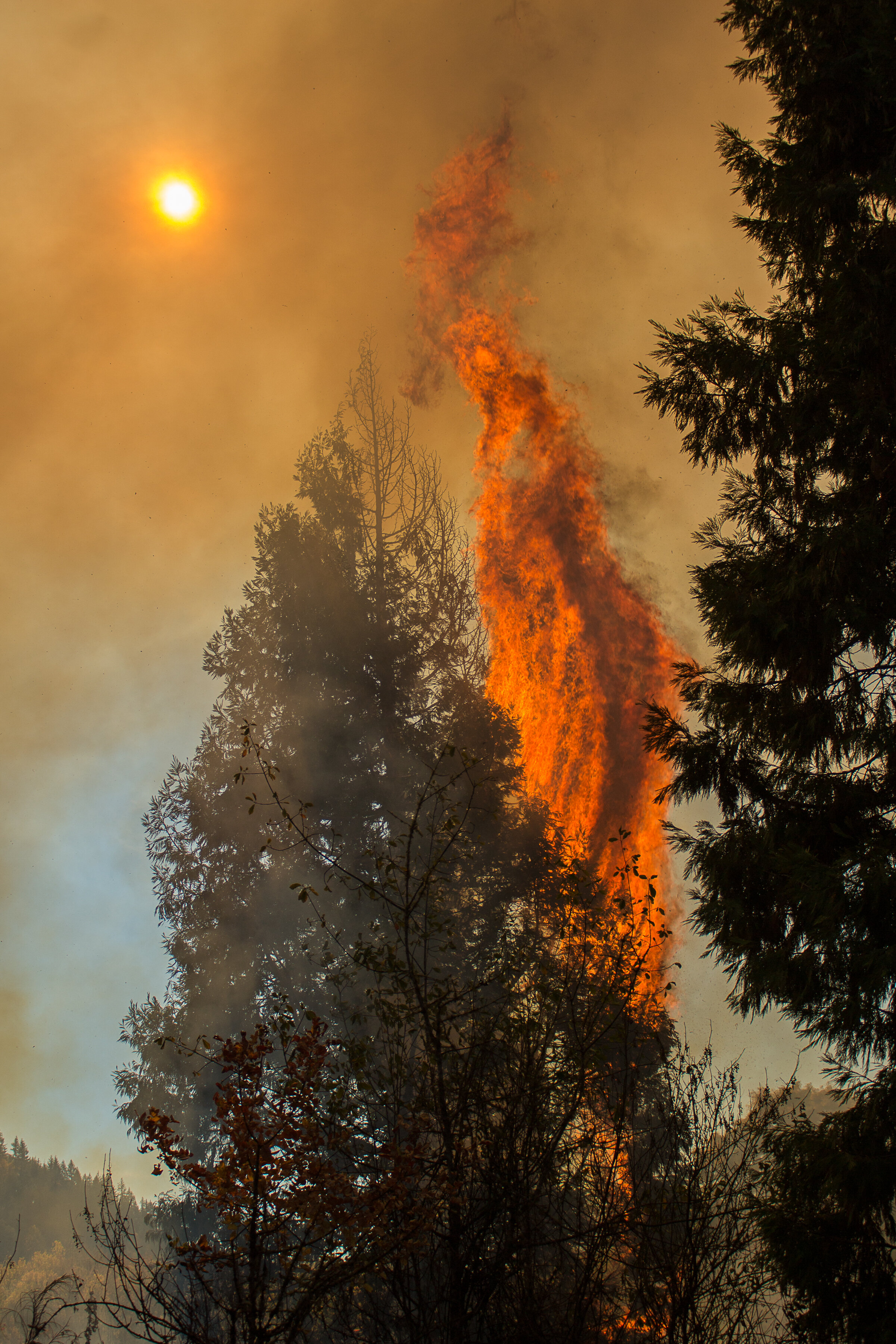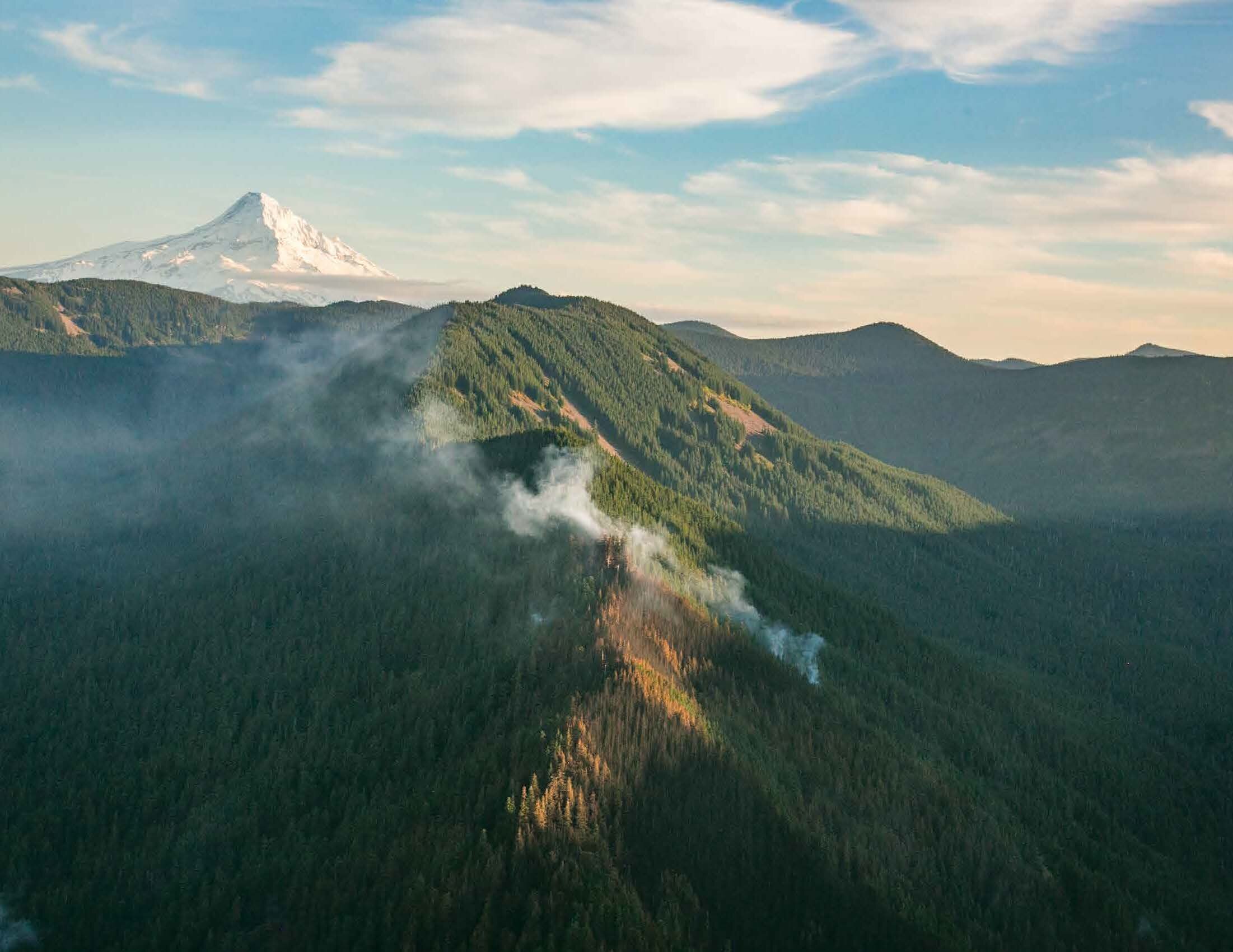
Building a Tender Box: A Renewal of Cultural Burning
Cultural burns are central to the restoration and protection of our shared land and waterscapes. The Native-led Traditional Ecological Inquiry Program (TEIP) rebuilds our relationships with each other, the land, and fire by amplifying Indigenous voices and traditional ecological knowledge in environmental education and stewardship.

Planning Smokey Bear’s Retirement
Animal mascots are effective for engaging information with children. Animal mascots are relatable to children and are engaging to a child's imagination and creativity, and helps to draw their attention to playful characters that can emphasize the retention of learning the material being presented.

Undulating Undulates
Incendiary Imbeciles #3
Wildland fire workers’ “Ethics” contemplates “Ecology” within the Golden Rule. Sometimes institutional biases prevent participants from doing the right thing, still wildlands abide.
From the plane I saw the herd of elk below. Our airplane and jumpers floating into the meadow jumpspot must have disturbed them. The elk herd began to stampede.

Locked down and unequal: The looming shortage of firefighting crews in California
Over 1,400 inmates and employees at San Quentin Prison have tested positive for COVID-19. Six on death row have died of the disease. A growing public health crisis in the Bay Area, itself, transfers from San Quentin are responsible for COVID-19 being introduced into the Susanville prison population and the Conservation Camp of firefighters there. In Northern California last week, during the run-up to the 4th of July holiday, only 30 of 77 inmate crews were available in Northern California. That’s 800 fewer wildland firefighters available to dig lines, put in hoselays, and save homes and communities.

The Science Basis for Ecological Fire Management
An introductory guide to the literature of Ecological Fire Management. This database provides an introduction to the fire science literature that gives evidence of a paradigm shift and validates the need for EFM. The database is organized by key topics in fire science and management that are also often the subject of public and policy debates over forest management.
Short synopses of each topic synthesizes some of the main papers, and each section will include bibliographic references and excerpts from of key publications. The papers cited all contribute to a growing literature that may be the science basis for developing policies, programs, and projects that implement EFM.

The Literature of Ecological Fire Management
An Unfolding Bibliography for an Emerging New Paradigm. This is a list of the best peer-reviewed publications for providing the scientific foundation for Ecological Fire Management.

PYROGANDA: Creating New Terms and Identities for Promoting Fire Use in Ecological Fire Management
Agencies, organizations, and institutions in the wildland fire community will have to engage in an explicit pro-fire “pyroganda” campaign to help counter its historic anti-fire propaganda and inspire necessary changes in consciousness and behavior in the public and fire management workforce. As part and parcel of this effort, FUSEE proposes renaming wildland firefighters as fire rangers.

Spotlight: FUSEE Board Members
Firefighters United for Safety, Ethics, and Ecology would like to welcome its two newest Board Members, Bill Tripp and Taro Pusina.

Forests, Wildfire and Climate Change
Wild re has been an integral part of western forests for thousands of years, but in recent decades con icts between people and re have increased dramatically. Climate change is bringing hotter, drier conditions to western forests, which is increasing re activity, and scientists predict that this trend will continue as the planet heats up. This guide is intended to help climate and forest activists understand the unique dynamics between forests, wild re, and climate so we can collectively chart a new path towards community resilience to the impacts of climate change. By modernizing our wild re policies, we can protect homes and communities while restoring the important role that re plays in the forest ecosystems of the American West.

Stephen Pyne on Recent California Wildfires
Stephen Pyne, a FUSEE collaborator and ally, as well as distinguished fire historian, was joined last Friday by Alexandra von Meier, and urban electrical grid specialist, to discuss the devastation witnessed during the past two seasons of California wildfires and how this might be avoided in the future. Their discussion was moderated by Ira Flatow, on Science Friday, a radio show heard on public radio stations across the country and distributed by WNYC Studios.

Other Than Full Suppression
This essay was written in response to a recent post at Wildfire Today: Wildfire News and Opinion, titled, “Are we experiencing a “new normal” of wildland fire behavior?”

Ferguson Fire: Yosemite's Proving Ground for Ecological Fire Use
The Ferguson Fire has been burning for nearly two weeks and has captured most of the attention of the national news media. Tragically, one firefighter was killed on the second day of the fire when the bulldozer he was operating rolled down a steep slope. Miraculously, no homes have been lost as of July 25th. The Ferguson is going to burn a large area over a long time.

Whither the paradigm shift? Large wildland fires and thewildfire paradox offer opportunities for a new paradigm ofecological fire management
The growing frequency of large wildland fires has raised awareness of the ‘wildfire paradox’ and the ‘firefighting trap’ that are both rooted in the fire exclusion paradigm. However, a paradigm shift has been unfolding in the wildland fire community that seeks to restore fire ecology processes across broad landscapes. This would involve managing rather than aggressively suppressing large fires. Examples of recent fire science publications demonstrating ‘new paradigm’ thinking or critical questioning of ‘old paradigm’ assumptions are offered as evidence of this shift in thinking.

Wildland Fire Use
Fire is an essential, natural process on much public land, where natural ignition sources, like lightning, are abundant. Over the past century, fire suppression has altered historic fire cycles, leading to a dangerous build-up of vegetation in our wildlands. · One way for land management agencies to restore healthy conditions and protect communities is to take advantage of some natural fires. Wildland fire use projects are lightning-caused fires that are allowed to burn and spread naturally when they do not threaten people or property.
